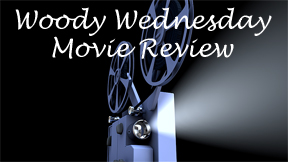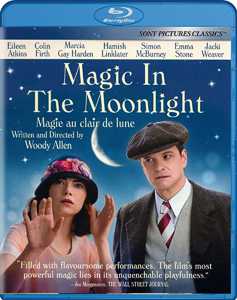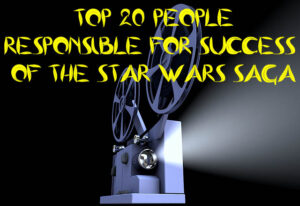“Magic in the Moonlight” (2014) is a middle-of-the-road Woody Allen rom-com, which still makes it better than most genre works — but leaves one thinking about how it could be better. It doesn’t take us into the world of old-school magicians like “The Prestige,” or make Emma Stone as ethereally beautiful as in “La La Land” — although, don’t get me wrong, her big eyes and smile are hard to resist – or tease out a 1920s vibe as evocatively as Allen’s own “Midnight in Paris.”
Gorgeous, but meandering
The film is easy to look at, as it is shot in the French countryside, but the story would’ve played better in a more compact form. Unusual for an Allen picture, the first act slogs as Colin Firth’s magician Stanley and his friend Howard (Simon McBurney) aim to debunk the work of medium Sophie (Stone). Stanley repeatedly recites his disbelief in the supernatural before we even meet Sophie, who is who we thought she was: a skilled, notably attractive, supposed psychic.
“Moonlight” finds its voice with discussions pitting the value of strict rationality against the value of believing in something more. Eventually I realized Stanley is the Allen stand-in; it’s more hidden this time because of the casting of a suave British actor.

“Magic in the Moonlight” (2014)
Director: Woody Allen
Writer: Woody Allen
Stars: Colin Firth, Emma Stone, Marcia Gay Harden
The film includes nice, real moments where one person is smitten with another but the feelings aren’t returned. We can tell poor Brice (Hamish Linklater) is destined for heartache; no woman wants to be worshiped.
Unaddressed age gap
Then we get a twist that signals a sharp change of acts in Allen films: Sophie has a thing for Stanley. While it’s true that age differences were not an issue 100 years ago like they are today, a modern viewer can’t help but notice that Firth is three decades older than Stone. The screenplay tells me there are sparks between them; the screen doesn’t quite. And Allen leans hard on the jaunty transitional music to remind us this is a rom-com.
While the narrative doesn’t smoothly flow, individual scenes are nice, including one where Stanley rationally lists Sophie’s qualities at a party but insists he harbors no feelings. Out of context, it could play as someone who doth protest too much, but the screenplay’s notion is that Stanley is a strict rationalist – and a married one, to mostly off-screen Olivia (Catherine McCormack).
Later we get one of those fun scenes where a guy protests too much in a monolog – although Stanley’s Aunt Vanessa (Eileen Atkins) is nudging him along while playing solitaire – until his brain eventually catches up with his heart.
The solution to the question of Sophie’s psychic ability is sensible, something that would make Agatha Christie proud. I was distracted by enough other things that I was tricked.
“Magic in the Moonlight” is likable but rough around the edges. Those unlucky in love are left as blubbering pools off screen because Allen is in the mood for a happy ending. The movie doesn’t immerse us in its time, place or profession, and it’s choppy. Its fleeting, flirting moments of magic made me wish for more.


